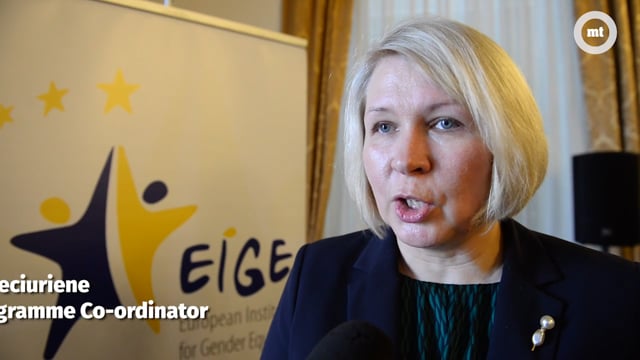[WATCH] Migrant communities unaware female genital mutilation is illegal in Malta, study finds
While female genital mutilation has been illegal in Malta since 2014, a study by the European Institute for Gender Equality has found that girls from certain migrant communities are at risk of being sent home to have the procedure performed


Most migrant communities in Malta are unaware that female genital mutilation (FGM) is illegal, Woman’s Rights Foundation member Rebecca Muscat said.
The information comes from a study with migrant communities, carried out by the European Institute for Gender Equality. The findings were released on Monday.
“Most participants in the focus groups were unaware, and very surprised to learn that female genital mutilation is illegal in Malta,” Muscat said.
FMG has been a criminal offence in Malta since 2014, along with forced marriage and sterilisation. Genital mutilation is also considered an act of domestic violence.

Malta was one of the six countries for which EIGE estimated the risk of FGM. The other countries include Greece, Italy, France, Cyprus and Belgium.
While there have been no recorded instanced of girls in Malta that were subjected to FGM, the study found that between 39% and 57% of girls originating from FGM-practising countries, who live in Malta to be at risk of being sent back by their families to have the procedure carried out.
A large part of the female migrant population in Malta originates from countries with a high occurrence of genital mutilation—Somalia, Eritrea, Egypt, Sudan, Nigeria, Ethiopia and Sierra Leone.
Each year, it is estimated that 180,000 girls and women in Europe are at risk of FGM.
Programme co-ordinator for gender-based violence, Jurgita Peciuriene said that communities are starting to turn away from the practice due to health risks, but there is still a large generational divide.
“There is a need for specific measures put into place, including providing information to communities, many of whom are unaware of the health risks that girls who suffer female mutilation face… we need to reach out to communities, to men who are opposed to female mutilation within these communities that have bigger spheres of influence, and are able to change opinions,” she said.
Equality Minister Helena Dalli said that Malta was committed to ending this practice. "Through the ratification of the Istanbul Convention, we have strengthened the legal framework against the practice. There is a law in place to criminalise the practice, as well as those failing to report potential or known cases of FMG to the authorities," she said.
The aim, she said, since the principle of extraterritoriality is in force, is to ensure that when FMG is done to girls when they go abroad and return home, the crime will be prosecuted in Malta.
However, Dalli said, that female mutilation is not a clear cut issue, as it may have cultural meaning to a woman, that people from outside of those cultures may not be able to understand.
She said it was important, to remain culturally sensitive while seeking to provide support for reluctant victims who may not come forward to due shame, or fear of exile from their communities.






.jpg)












.jpeg)



